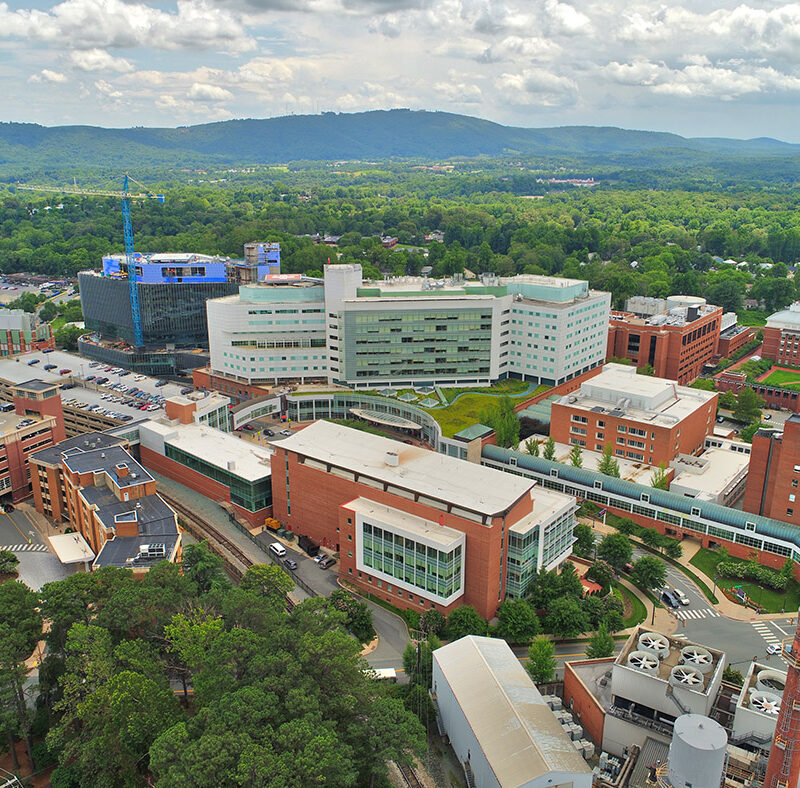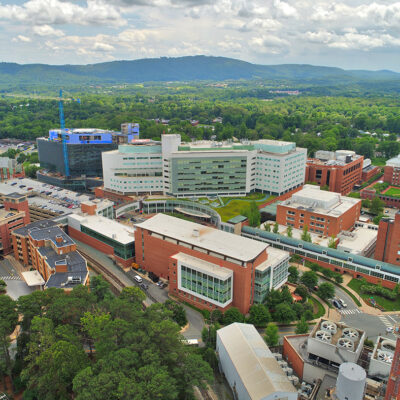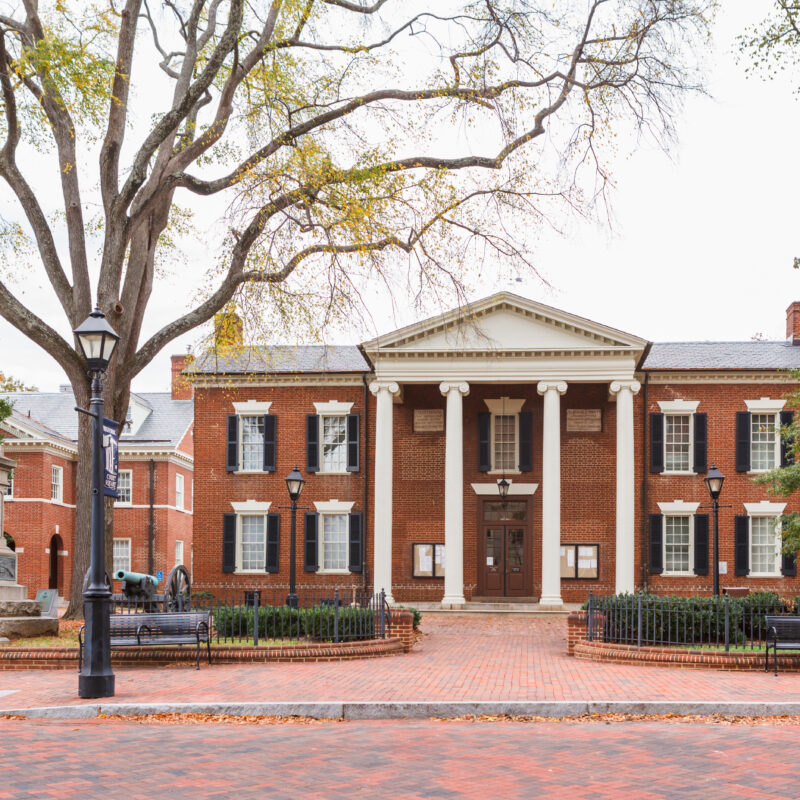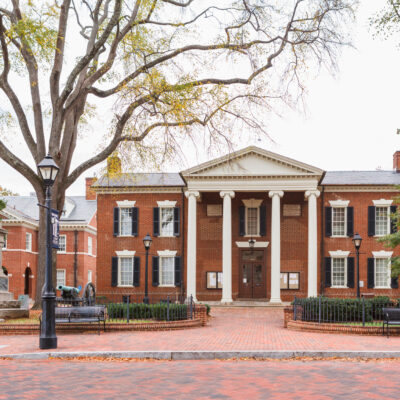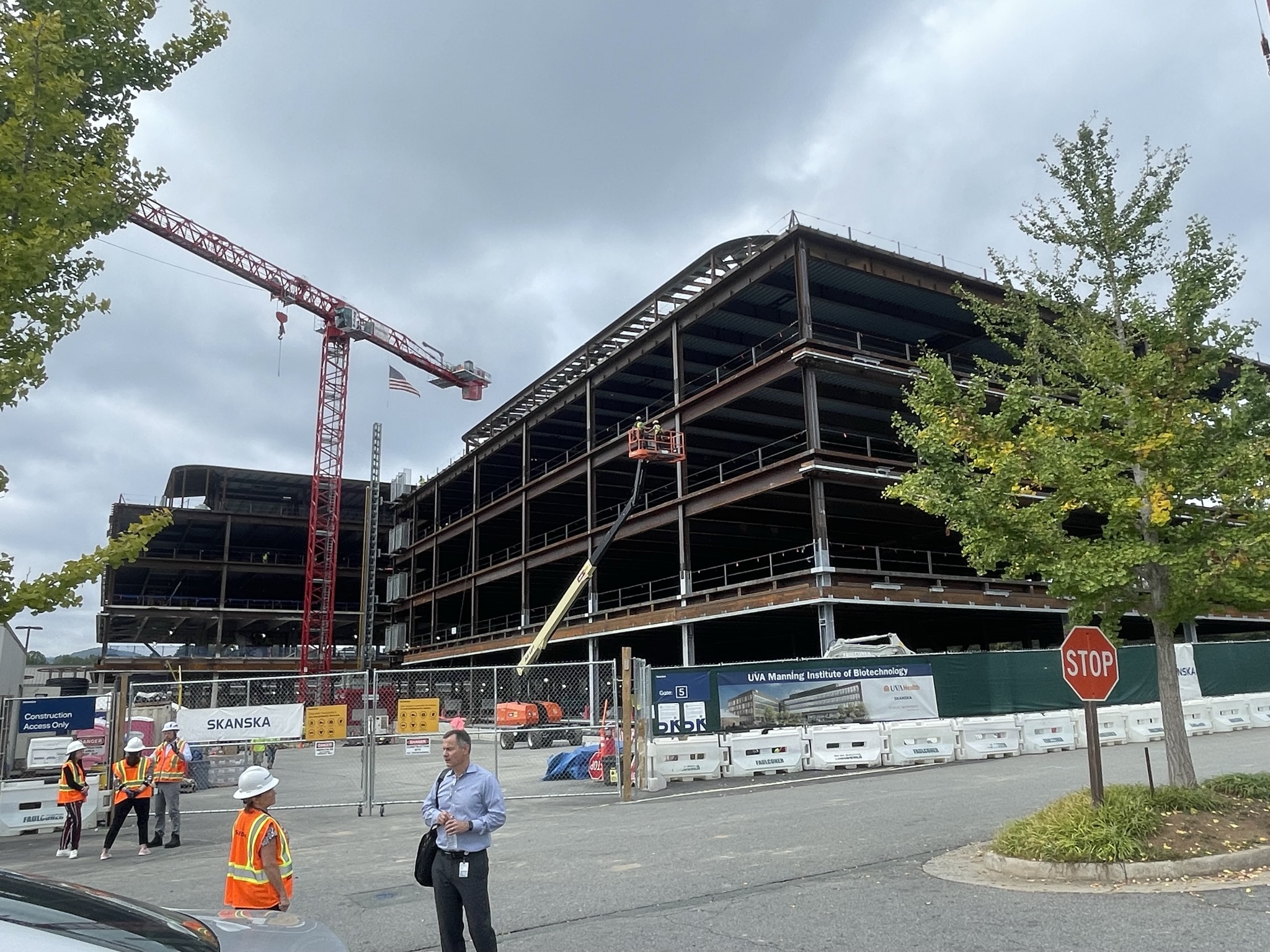
The skyline above the Fontaine Research Park temporarily includes two cranes as construction continues on projects such as the Paul and Diane Manning Institute of Biotechnology.
Last spring, the institute’s first director was hired after a career in the pharmaceutical industry that he now hopes will have a new chapter in Virginia.
“When I joined on May 1, I was walking the site down in the basement and I am thrilled to report that we’ll be having the topping out party on October 6, when we put the last steel beam up on the fourth floor,” said Mark T. Esser during a recent press briefing.
Esser said he is experiencing a once-in-a-lifetime chance to create a new biotechnology center from scratch at his alma mater. He earned his Ph.D. in microbiology from the University of Virginia in 1998 and was vice president for vaccines and immune therapies at the firm AstraZeneca before his appointment.
Esser said the Manning Institute’s mission is simply to transform science into new treatments for people with neurodegenerative diseases like Parkinson’s and Alzheimer’s.
“It’s really hard work, like to say a molecule is not a medicine,” Esser said. “How do you manufacture these things at scale in a cost-effective way that can really benefit patients? I’ve been doing it for 25 years. Love it. It’s always exciting.”
Since taking the reins, Esser has been building relationships within the UVA community and preparing for additional lab space. For instance, more than 50,000 square feet will be dedicated to cancer research. A goal is to work with groups like CvilleBioHub to continue growing an industry that is a top economic development priority for Albemarle County.
“We hope some of the research going on here at UVA and specifically in the Manning Institute will [advance] to a point where the technology is mature enough that people can start their own companies and kind of graduate from the Manning Institute,” Esser said.
According to research conducted for the recently adopted economic development strategic plan, the life sciences sector in Albemarle generated $269 million in “gross regional product” in 2024.
The University of Virginia Foundation and CvilleBioHub are building the infrastructure to increase that amount with the creation of the Commonwealth Bio-Accelerator at the North Fork Discovery Park.
CvilleBioHub is leading a study to determine the workforce needs of a sector that could add hundreds of jobs in the near future. Esser encourages people to study math and science at an early age to prepare for a career in biotechnology and other related fields.
“There’s plenty of opportunities for young folks to actually get that experience working in the lab shoulder to shoulder with real scientists doing the bench work,” Esser said.
The Manning Institute is under construction at a time when pharmaceutical companies are investing in Virginia. Earlier this month, Eli Lilly announced a $5 billion factory in Goochland County that is expected to create 650 jobs. AstraZeneca has indicated that it will build a similar center in Virginia, but an official announcement has not yet been made for a location.
Esser said he is hopeful the first medicines that emerge from research at the Manning Institute will be under clinical trials by 2030. Science is not the institution’s only component and there will be collaboration with the Darden School of Business as well to help with raising capital and securing deals.
“We’ll actually have space dedicated in the building for these kinds of entrepreneurs and residents to come alongside and help do that type of work,” Esser said.
Another crane at the Fontaine Research Park is assisting with the construction of a parking garage that is being built to support the Manning Institute as well as UVA’s greater transportation needs.


